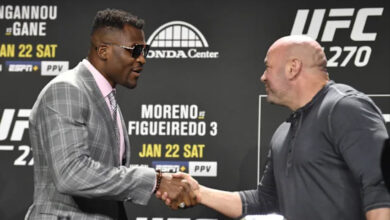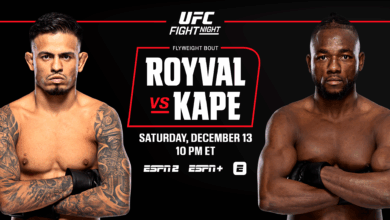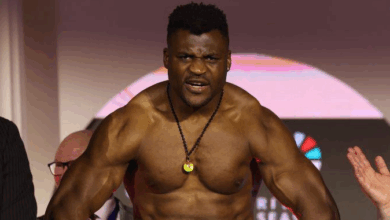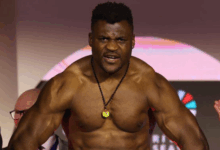Best Training Tips From Combat Sports Stars
Combat sports such as boxing and mixed martial arts at the top level require their athletes to achieve an extremely high level of fitness.
The top stars generally utilise the services of sports scientists and strength & conditioning coaches to ensure that they are in peak condition when they face their opponent.
Training regimes are tailored to suit each individual athlete, helping them maximise the potential of their body when they fight. Read on as we look at some of the best training tips from combat sports stars.
Nutrition the key to McGregor’s success
Conor McGregor’s recent comeback victory over Donald Cerrone was the perfect example of how to turn up for a fight in perfect physical shape.
The Irishman admitted he had failed to prepare properly for his bout against Khabib Nurmagomedov back in 2018, but he didn’t repeat the mistake against Cerrone.
McGregor had previously enjoyed plenty of success in lower weight divisions, but stepped up to welterweight for his latest contest at UFC 246.
He made a stunning return to action, demolishing Cerrone within 40 seconds to send a message out to other UFC fighters that he was back with a bang.
The key to fighting at the higher weight class was a sticking to a structured nutritional plan – an ethos that McGregor has followed throughout his career.
“I eat good meat – chicken, salmon, some steak – and a lot of quality greens and some fruits like bananas,” said McGregor. “I eat eggs – an omelette with my Americano for a late breakfast or brunch.
“Getting enough protein is important when I train, to help build muscle and recover, so I’ll supplement with protein shakes.
“I drink mostly water or coconut water. It’s important to stay hydrated – first thing I do in the morning is stretch and drink water.”
Fury focuses on mental wellbeing
Tyson Fury’s victory over Wladimir Klitschko was tipped to be the catalyst for a period of dominance over the heavyweight division for the British star.
However, the ‘Gypsy King’ suffered a well-documented mental breakdown that not only nearly cost him his career but also his life.
The former undisputed heavyweight champion battled back, famously shedding nine stone as he made an unlikely return to the ring.
A draw with Deontay Wilder highlighted his strength of character and he will get another chance to regain the world title when he faces the American again during February.
Fury says that focusing on his wellbeing by looking after his mental health, optimising his sleep (including using the best-possible mattress and healthy pre-sleep habits) and maintaining physical fitness have played an important part in his recovery.
“After I had a mental breakdown, when I came back I had a different outlook on life,” he said. “Things I used to stress about and all the things I used to care about don’t really matter to me anymore.
“The most important thing for me to do now is just keep mentally well, keep healthy and stay fit. I stay in the gym and enjoy what I love to do, boxing, and I take every day as it comes.
“I suppose we can never look too far into the future, and I give myself short-term goals rather than long-term goals.
“Staying active and staying fit makes me happy and well, so I’ll continue to do that throughout my career and life.”
Joshua keeps the cardio ticking over
Anthony Joshua may eventually be on a collision course with Fury further down the line and it is fair to say that there is no love lost between the pair.
Fury once dubbed Joshua a ‘talentless bodybuilder’ and the two fighters previously appeared to have very different ideas about training.
Joshua did seem to take notice of his rival’s comments in preparation for his rematch against Andy Ruiz Jr, trimming down for his second meeting with the Mexican-American.
The move worked to perfection for the 30-year-old as he produced a dominant display to secure a unanimous points decision.
Joshua admitted in the run-up to the bout that keeping on top of cardio now plays an important of his training regime both before and after his fights.
“It’s important to do the bike,” he said. “I say that because you’ve still got your cardio-based training, but it takes the pressure off your joints so don’t get any wear and tear.
“Swimming is good because it builds the muscle, it keeps the muscle active, it keeps your cardio, but you don’t do any wear and tear on your joints because you’re not pounding the streets running.
“Just do exercises for your core, do some planks, raise your legs just to keep your core strong so you don’t lose the fundamentals like your cardio. Swimming helps with your all-round strength and your core just to keep everything intact.”




